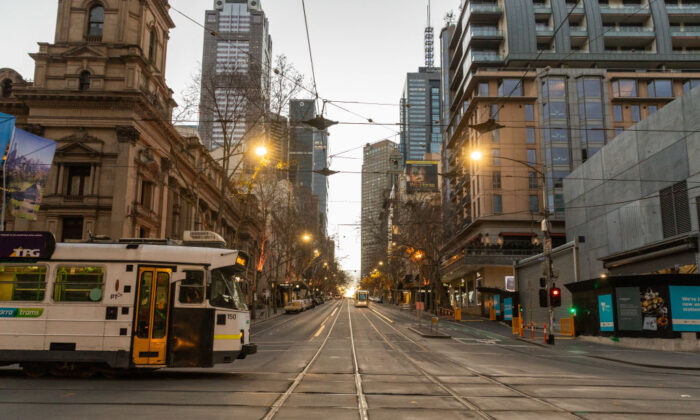
Instead, lockdowns should be abandoned once the 70-80 percent vaccination threshold is reached, Patrick McGorry, a psychiatrist and former Australian of the Year, told The Age.
“The zero-COVID idea in the long run, once all the vaccines are available, it seems to me like it’s very unrealistic, and the consequences of it, including for mental health, would be something I’d be concerned about,” McGorry said.
While the spread of the Delta strain of the CCP virus has seen state governments place more than half of the population into lockdown, there are concerns that health systems have been overwhelmed by young Australians seeking mental health services.
In NSW, presentations at emergency wards for self-harm and suicidal ideation increased 17 percent from July 2020 to July 2021, while Victoria recorded an increase of 51 percent during the same period, according to the Australian Institute of Health and Welfare (AIHW).
Data released by the Victorian Coroners Court show an increase in suicide cases among teenage girls, with eight cases recorded this year alone, reported The Australian. Suicide interventions also increased 189 percent to 294 cases.
McGorry described the health crisis as a “shadow pandemic.”
“The system is drowning or crumbling,” he said, adding that every lockdown has made the crisis worse.
“It’s not that the government hasn’t recognised the problem; it’s that they don’t have the same sense of urgency—federal or state—about addressing it as they do with COVID,” McGorry said.
However, the Victorian government has acknowledged the “emotional, social and financial” impacts of the lockdowns. But said that it couldn’t “risk the devastation of an uncontrolled outbreak of the Delta variant spreading rapidly across the state,” reported The Australian.
The Victorian government said that it had invested more than $225 million to help boost mental health services during the pandemic.
Victorian Liberal Democrats MP David Limbrick said despite the Andrews government announcing the financial investment into mental health, children who need help could not access it.
“The mental and physical health effects of lockdowns on children are catastrophic.”
Limbrick said that schools should be opened immediately, with an end date set for restrictions after enough people have accessed vaccines.
Meanwhile, calls made to Lifeline reached a record on Aug. 5—with 3425 Australians having called the national support line for help, reported The Age.
Lifeline chair John Brogden said calls had spiked since the start of Sydney’s lockdown, with callers expressing more anger compared to last year’s lockdown.
“Last time around, we saw a lot of anxiety. This time we’re seeing a lot of anger,” Brogden said. “Anger is a much more dangerous emotion for people’s mental health.”
“There is a very clear connection between lockdown and mental illness,” Brogden added.
“We’re beginning to realise—and we’re hearing more and more people say this—that we have to live with COVID. That’s from a mental health and a physical health perspective.”
McGorry’s comment comes as NSW Premier Gladys Berejiklian has conceded that NSW may never return to zero-COVID cases.
Meanwhile, WA Premier Mark McGowan has pushed for the policy of zero-COVID cases, backtracking on the National Cabinet agreement.
In June, all states and territories agreed to a three-stage plan to opening the country, where lockdowns would be “unlikely but possible” if vaccinations reach 70 percent, and “highly targeted” if 80 percent is reached. Currently, 26.9 percent of adults over the age of 16 have had both vaccine doses, with nearly half having had their first dose.
Source